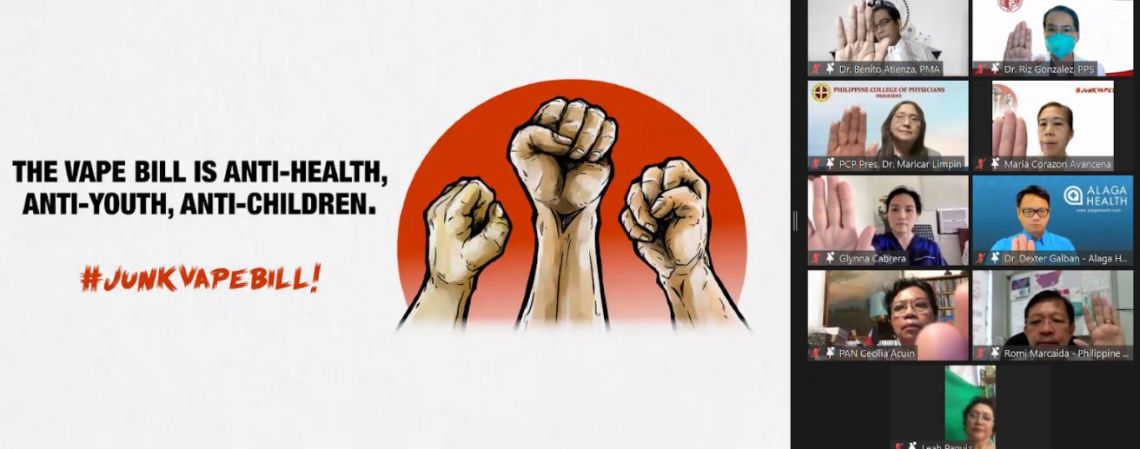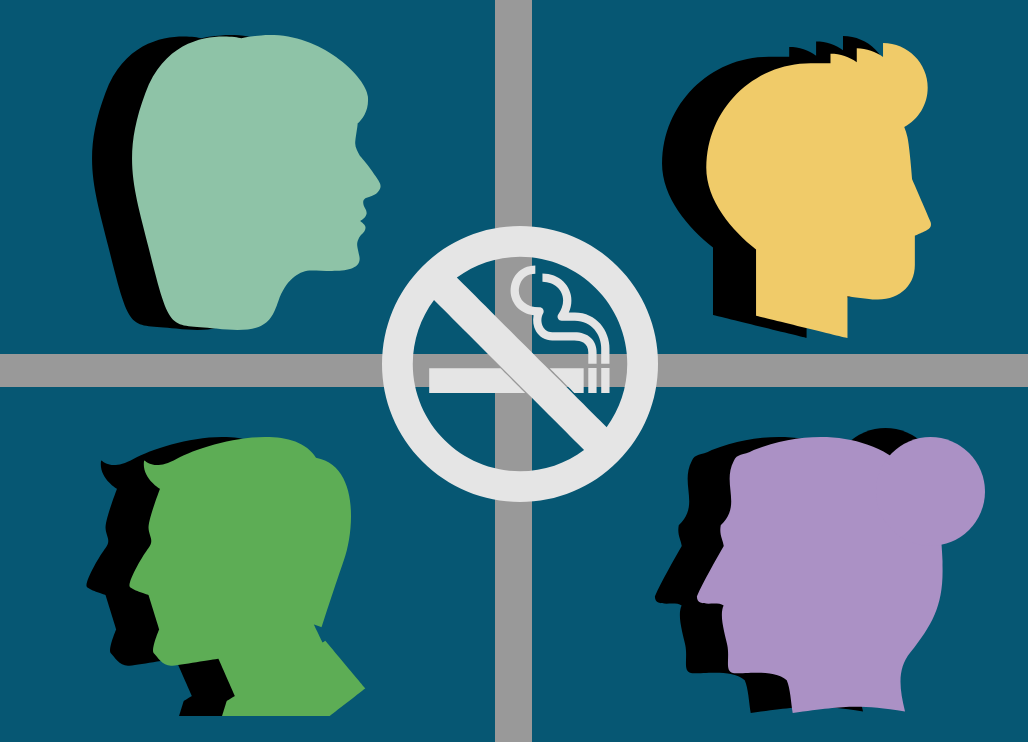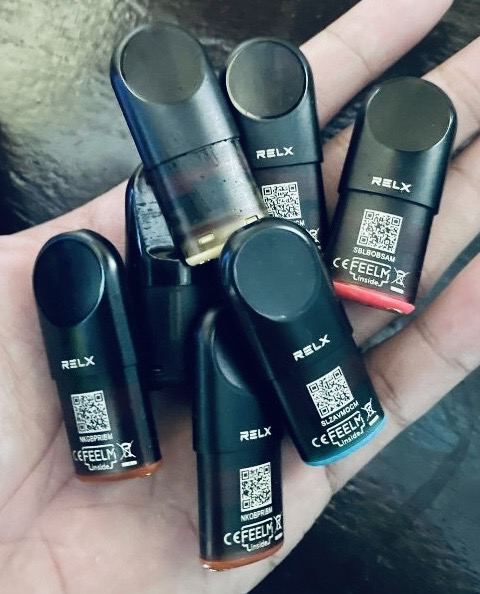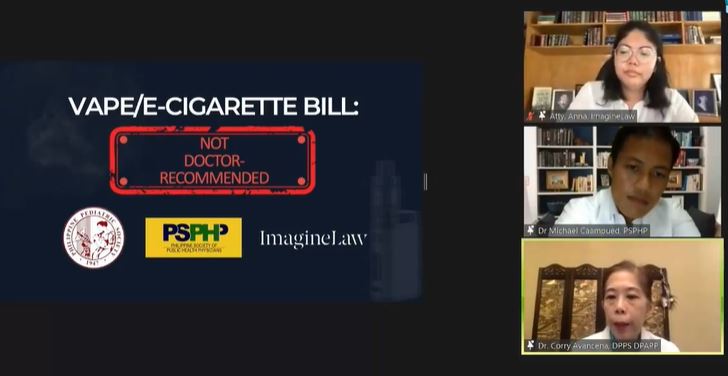
Medical experts, youth groups and other anti-tobacco advocates are appealing to legislators to reconsider their votes for a bill, which they describe as anti-health and anti-youth but pro-tobacco industry.
Senators approved on second reading last Monday Senate Bill No. 2239, or the proposed Vaporized Nicotine Products Regulation Act, lowering the minimum age of access to alternative tobacco products, such as vape and electronic cigarettes, from 21 to 18. The bill is expected to be voted on third and final reading on Thursday, Dec. 16, before Congress adjourns for a month-long Christmas break. The House of Representatives approved its version last May.
In separate forums organized by civil society organizations ImagineLaw and SinTax Coalition on Dec. 14 and 15, doctors and health advocates also called on President Rodrigo Duterte to be consistent with his stand against vaping by vetoing the bill when it reaches his desk for his signature.
The health experts representing various medical groups across the country lamented that as the country struggles with the coronavirus disease 2019 (COVID-19) pandemic, the legislators prioritized the bill that promotes products that are harmful to health. Some questioned the timing of its passage.
SB 2239 covers heated tobacco products (HTPs) and electronic nicotine/non-nicotine delivery systems (ENDS/ENNDS), known as alternatives to the regular cigarettes.
Apart from lowering the age of access to 18, the bill also classifies the novel tobacco products as consumer items falling under the regulatory authority of the Department of Trade and Industry (DTI), not as health products under the Food and Drug Administration (FDA).
‘Senate betrayal’
Dr. Maricar Limpin, president of the Philippine College of Physicians, noted the legislators’ special interest to have the bill passed while other measures concerning COVID-19 are not moving as quickly.
“While we are fighting against the pandemic… while we are risking our lives and our family’s lives… the Senate is racing to pass this bill,” she said, adding that the medical experts’ suggestions aired during several consultations with lawmakers were left unheeded.
“We will continue to campaign against this bill and those who will vote for the bill,” Limpin said as she appealed to the president, who has expressed his opposition to vaping, to veto the measure.
“This vape bill should be vetoed in its entirety should [the] Senate choose to pass it,” she said.
Dr. Anthony Leachon, a former government medical advisor, said the timing of the bill’s swift passage as the elections draw near is questionable.
“It’s saddening…Our trust was betrayed. We help [legislators] with health advocacies in crafting policies, and they clung to the tobacco industry,” he said.
Dr. Antonio Dans, president of the Asia Pacific Center for Evidence-Based Healthcare, said one reason why some support the bill is because of the concept of harm reduction or the belief that vaping can help them quit.
The FDA has warned that the products introduce new risks over those already present in traditional cigarettes, stressing that these are not proven to be effective for nicotine replacement.
‘Anti-health’
Limpin also said, “There is no evidence that will show us that these products are safer.” She added: “The mere fact that they contain the same chemicals as cigarettes will tell us that these are not safe. These are still harmful.”
According to the World Health Organization (WHO) and the Center for Disease Control and Prevention, ENDS, such as electronic cigarettes (e-cigarettes), contain toxic chemicals including nicotine, an addictive substance, that are harmful to health. (Read VERA FILES FACT SHEET: Smoke-free alternatives to cigarettes explained)
Former Health secretary Paulyn Ubial, who said her stance has always been against smoking, warned of the long-term effects of using HTPs.
(Read VERA FILES FACT SHEET: The PH gov’t stance on tobacco industry, novel products)
“[Smoking] can be fatal. We are advocating its… absolute non-use of vaping because there are no benefits,” she said.
Dr. Corry Avancena, head of the Task Force on Anti-Smoking of the Philippine Academy of Pediatric Pulmonologists (PAPP), for her part, said there was no need for new legislation.
“There’s [already] a sin tax law, so we should improve our existing law, not weaken it.”
Republic Act (RA) 11467, a law enacted in 2020 that increased the excise tax on alcohol products, e-cigarettes and heated tobacco products (HTPs), and Executive Order 106 raised the age of accessibility from 18 to 21.
‘Anti-youth measure’
Dr. Riz Gonzales, chair of the Philippine Pediatric Society’s Tobacco Control Advocacy Group, stressed that these products “target the children” due to several factors, such as peer pressure, and warned that those who consume these novel products are more likely to use illicit drugs and alcohol.
(Read VERA FILES FACT SHEET: What lowering age restrictions on e-cigarette smoking means for the youth)
At least 16% of those aged 13 to15 use tobacco products, while 54.2% of them are exposed to secondhand smoke in enclosed public places, and 38.3% are exposed at home, according to international non-profit Campaign for Tobacco-Free Kids (CTFK) in an updated June 2020 survey.
Avanceña said apart from nicotine, electronic juices (e-juices) or vape flavors significantly add to why the youth want to try HTPs.
According to the CDC, nicotine can harm the adolescent brain, which keeps developing until about age 25.
“If [smoking] starts at an early age, there will be bigger damage done to the brain,” Avancena said.
She added: “If senators say that vaping should be accessible to those aged 18 and above because drinking alcohol and smoking [traditional tobacco products] is legal at that age, then everything should be raised to 21-year-olds.”
Youth groups, such as Akbayan Youth, Asian Medical Students’ Association – Philippines (AMSA-Phil), Children Rights Network, added that children are especially vulnerable due to growing curiosity about the products.
Mental health issues triggered by the pandemic may also play a part in attracting the youth to smoke, said one child rights advocate.
Regulation under DTI
Gonzales added that transferring the FDA’s regulatory authority over the products to the DTI is a win for the tobacco industry.
“The [DTI] has neither the mandate nor the capacity to fulfill this role. Our team has been asking what our government is doing to protect our children. Let us junk this vape bill. We should protect health and not [the] industry,” she said on Tuesday.
Dr Benito Atienza, president of the Philippine Medical Association (PMA), urged legislators to rethink their stand and focus more on preventive measures, especially with the ongoing pandemic.
The Department of Health, in a November 2020 press release, said that a smoke-free Philippines can lessen the risk of COVID-19 as HTPs weaken the lungs and the immune system.
“I had a patient who died at 17 years old from lung cancer. [This patient] started smoking at 10… Even if it’s just vape, there’s nicotine in it,” Atienza said, adding that the youth now are especially vulnerable because of the pandemic.
“The PMA is the first organization in the Philippines which comprises almost all medical practitioners in the Philippines. We call on our senators to junk the vape bill… because this is anti-youth, anti-health and pro-industry,” he said.
About 110,000 Filipinos die from tobacco-related diseases each year, according to the same survey by the CTFK.
Sophia San Luis, ImagineLaw executive director, added that the industry has been involved in government regulatory efforts, turning a deaf ear to the medical practitioners’ advice.
“Passing the vape bill is a complete reversal of the life-saving policies the Senate enacted in the time of COVID-19…The last two years should have taught us the value of listening to our doctors and prioritizing public health,” she said at the forum on Tuesday.
Sen. Ralph Recto, the principal author of the bill, claimed that the novel tobacco products are for harm reduction, despite being informed by medical practitioners about its risks, said San Luis.
“He also confuses his personal experience as an avid smoker and now avid vaper with public health impact,” she said.
“We’ve seen the same [health] effects of cigarettes. Let’s not wait for history to repeat itself,” said Limpin.
Editor’s note: VERA Files is part of Project Seeing Through the Smoke, which has support from the International Union Against Tuberculosis and Lung Disease, Inc (The Union) and Bloomberg Philanthropies.



